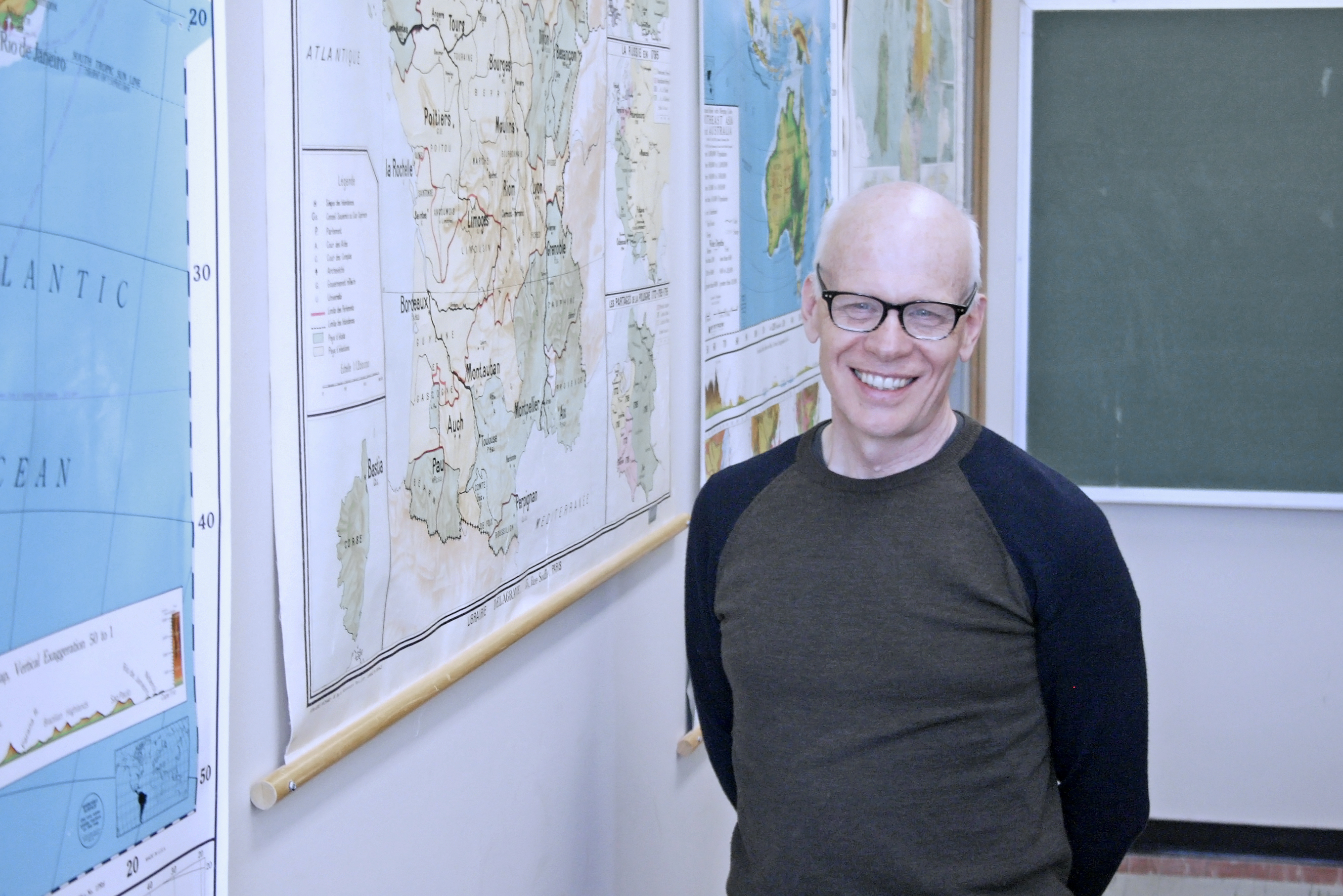
PICTuring Learning Through International Collaboration
Dr. David Parkinson, of the Department of English, is a veteran professor who has embarked on a steep learning curve the past few years. Since offering a First-Year Research Experience (FYRE) in a class he taught in September 2016, Parkinson has gone on to combine FYRE with an international teaching and learning experience, the Project in International Collaborative Teaching (PICT). Parkinson works in partnership with his co-instructor, Dr. Payel Chattopadhyay Mukherjee to create a set of interconnected courses, with content provided at each location by both professors. As a result of the enriched instruction, students in Parkinson’s and Mukherjee’s classes gained a fully-integrated, international research experience without crossing borders.
Dr. David Parkinson, of the Department of English, is a veteran professor who has embarked on a steep learning curve the past few years. Since offering a First-Year Research Experience (FYRE) in a class he taught in September 2016, Parkinson has gone on to combine FYRE with an international teaching and learning experience, the Project in International Collaborative Teaching (PICT). PICT pairs courses across two international institutions and builds one-to-one partnerships with colleagues situated abroad from one another in order to give both students and instructors an international research experience. In 2017/2018, Parkinson’s English 110.6 connected U of S students with students taking a similar 100-level literary studies course in Ahmedabad University, India. Parkinson works in partnership with his co-instructor, Dr. Payel Chattopadhyay Mukherjee to create a set of interconnected courses, with content provided at each location by both professors. This international exchange affects the syllabus but not necessarily the assessments. As a result of the enriched instruction, students in Parkinson’s and Mukherjee’s classes gained a fully-integrated, international research experience without crossing borders.
The road to PICT was rough at first. Students, especially those located in Canada were hesitant to embrace the program wholeheartedly, but by the time the course concluded they had adjusted. As Parkinson explains, each cohort is challenged to shape their cultural understanding of the “other” group in new ways. Student pairs or groups meet twice a week to explore and analyze a suite of Canadian- and Indian- authored texts and share insights on sensitive topics. “You need to trust the other person” to share what are often deeply held views and open yourself up others outside your cultural background. That’s why Parkinson encourages his students to focus on simply getting to know one another and ensuring that conversations are respectful. When the “academic heat” is removed and supports are in place, both for students and instructors, Parkinson finds that students across the two geographical contexts will end up contributing far more than they would otherwise, and the whole class becomes more culturally and critically aware.
Now, Parkinson cannot imagine teaching the same class without PICT. “Teaching is not just about imparting… but enabling and facilitating.” So, that is what he does with his approach to English 110. It is “a class that doesn’t simply confirm something you already think.” Literary studies can be incredibly contentious and sparing students from the unsettling conversations or uncomfortable process of reframing their thinking does a disservice to them.
To faculty who are thinking of opting in to including an international collaboration, Parkinson’s advice is “You have the trust and interest and can see where the opportunities are… There will be assistance – whether editorial, practical, technical, or information-sharing.” It’s only a matter of spotting the opportunity and contacting that colleague abroad to realize it. Internationalization transforms education to the benefit of instructors, students, and institutions alike.
To further realize the possibilities around international collaboration, Parkinson is currently working on establishing a virtual research conference for students he and his international colleagues have taught locally and overseas. Parkinson says the conference’s tentative name is World Class Day and it is slated to take place in March 2019, with negotiations underway with faculty at institutions in India and China. At this live, on-line event, student groups will broadcast brief reports on research projects they have been conducting for classes at their home institutions and interact with one another across disciplines, time zones, and levels of study. In this way, class-based conversations extend, research experiences expand, and international-learning continues to curve upward, deepening students’ and faculty experiences without any of the trouble of travel.
Here, you’ll be able to check for updates about the research conference and about the Project in International Collaborative Teaching

